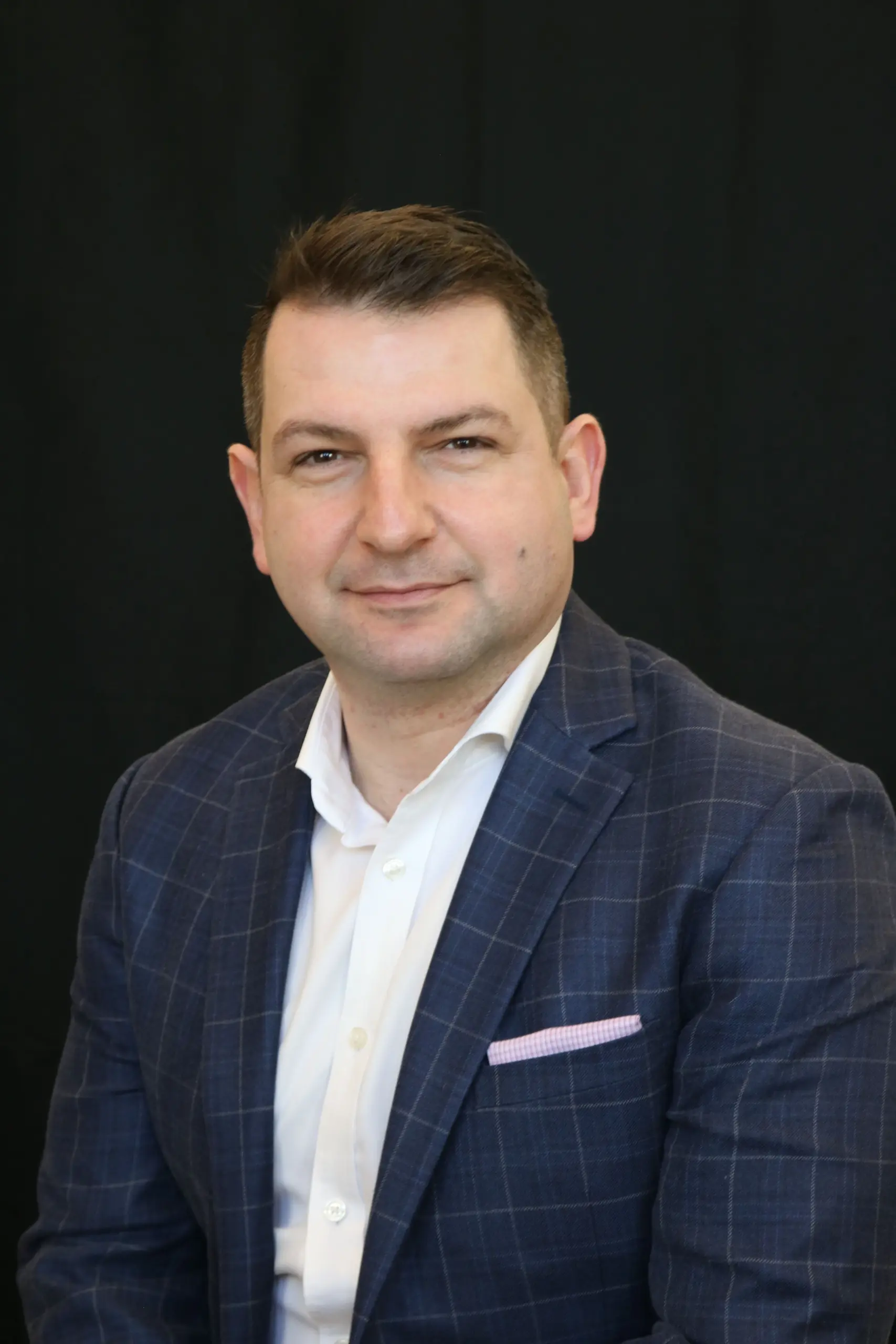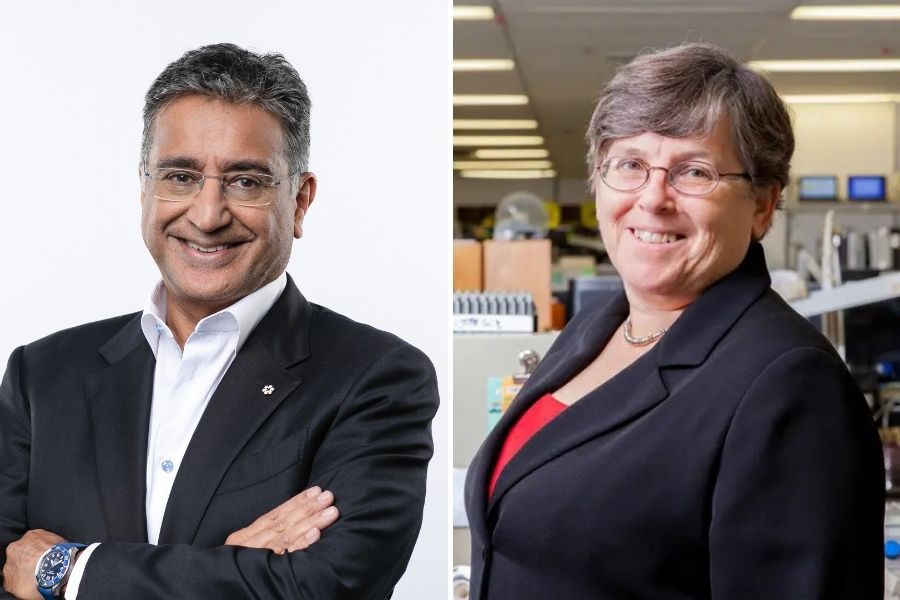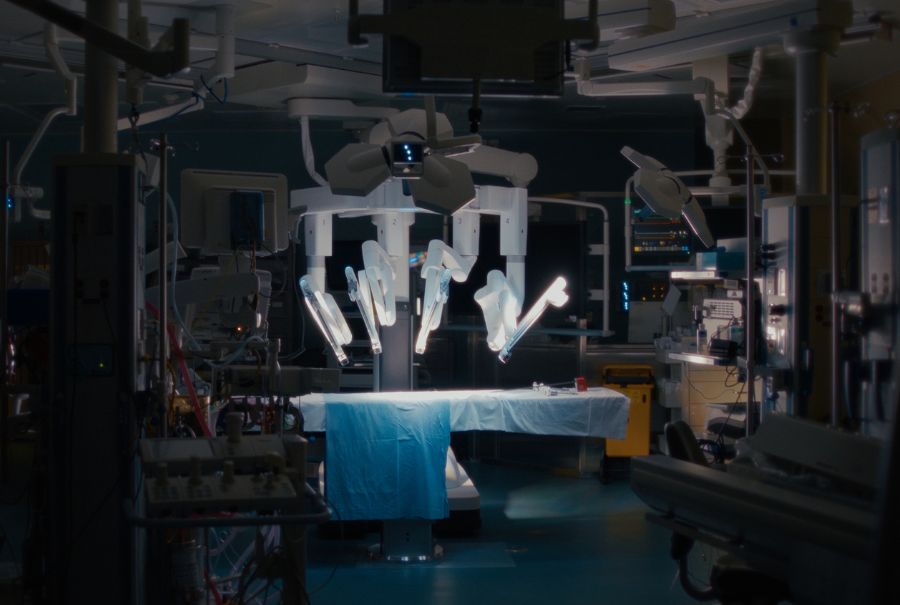
Esteemed surgeon Dr. Andras Fecso, originally from Romania, exemplifies through his remarkable journey how UHN serves as a magnet for international talent, providing the infrastructure and collaborative culture vital for medical innovation to flourish. What began as a newly immigrated physician volunteering in 2007 has evolved into a career that’s helping reshape obesity treatment across Canada.
Dr. Fecso’s roles include Endoscopy Education Lead at the Temerty Advanced Surgical Education & Simulation Centre at the Michener Institute of Education, UHN, Surgeon Investigator at the Institute of Education Research, and Assistant Professor at the University of Toronto. His combination of clinical excellence and educational leadership positions him at the forefront of advancing Canada’s capabilities in endobariatrics – a specialized field of medicine that combines endoscopy with bariatric (weight loss) treatments to offer patients minimally invasive alternatives to traditional surgery.
This rapidly evolving field offers thrilling new hope for treating obesity, and Dr. Fecso has made history by establishing Canada’s first academic endobariatric program at UHN in July 2024. His achievement represents not just personal success, but a testament to UHN’s ability to nurture international talent into medical pioneers who transform patient care on a national scale.
Below, Dr. Fecso speaks about the allure of UHN, his groundbreaking work here, and his plans for the future.
What initially drew you to working at University Health Network (UHN)?
The first time I stepped into UHN was in 2007, as a newly immigrated physician from Romania. I started volunteer work, observerships, and got involved with research projects so I could learn about the Canadian healthcare system. I did this while I was studying for my qualification exams and trying to get into the general surgery residency training program.
I remember as if it was yesterday, the initial feeling that I got back in 2007. Being here at UHN is where I belong — this is my place. The people I’ve met then who helped me are the people that I’m working with now: my partners, my colleagues. They made an invaluable contribution to how I felt then and how I feel today, almost 20 years later.
Can you describe a moment or project at UHN that made you think “this is exactly where I need to be” – something that truly excited you about the possibilities here?
Fast forward almost 20 years since my first time being at UHN. I completed my general surgery residency training, my PhD, and my fellowships at UofT. My subspecialty training was in bariatric surgery and therapeutic endoscopy. While I was completing these two very different fellowships, I increasingly realized the synergy between endoscopy and surgery. My career goal and vision were to build upon these skills and to develop the field of endobariatrics (endoscopic treatment options for obesity) in Canada.
When I applied for my current position and shared my vision with the leadership of the division and hospital, I felt the support, the shared vision, and I knew that I had arrived home. The feeling that I felt almost 20 years ago, when I first stepped into UHN, came to life again and solidified my feeling that this is my place—I belong here.
What aspects of UHN’s research environment or clinical infrastructure have been game changers for advancing your work?
I’m a Surgeon Investigator with an academic interest in education and innovation. Being able to join The Temerty Advanced Surgical Education and Simulation Centre at Michener was a game changer. I am the Endoscopy Education Lead at the Centre. Since I have joined, we became SAGES certified, an official FES testing centre, which is the only one in Ontario, and one of two in Canada, besides Montreal.
We are able to provide endoscopy education for our trainees with state-of-the-art technology, low and high-fidelity simulators.
As an educator, joining TIER (The Institute of Education Research) at UHN gives me opportunities to collaborate with other scientists, which is extremely valuable.
Looking ahead 5 to 10 years, what ambitious goals do you have for your work at UHN?
On July 15, 2024, we launched the first academic endobariatric program in Canada at UHN.
As in many other aspects, UHN is leading the field of endobariatrics in Canada, not only in clinical advancement, but in research, education, peer-to-peer coaching, and supporting and guiding other centres in their efforts to start their own programs. To support our vision, the goal is to establish, within the Temerty Centre, an Academy of Innovation, Research and Education in Surgical Endoscopy.
Furthermore, for the benefit of the Canadian bariatric patient population, our goal is to work with stakeholder organizations towards incorporating these options as part of the funded procedures, so all eligible patients across the country can have access to these options.
For a researcher or surgeon considering their next career move, what would you tell them about the unique opportunities and culture at UHN?
In my opinion, UHN is Canada’s hospital for many reasons, including unique expertise, innovation, technology, groundbreaking research, etc., but above all, the UHN family – the people who work here – is the most important thing to consider.

No one ever changed the world on their own but when the bright minds at UHN work together with donors we can redefine the world of health care together.


